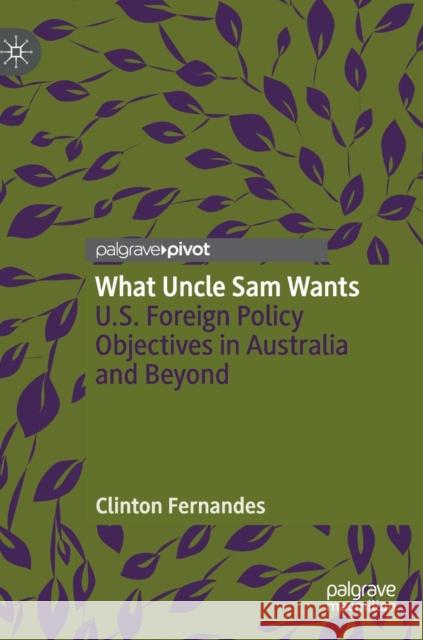What Uncle Sam Wants: U.S. Foreign Policy Objectives in Australia and Beyond » książka
topmenu
What Uncle Sam Wants: U.S. Foreign Policy Objectives in Australia and Beyond
ISBN-13: 9789811377983 / Angielski / Twarda / 2019 / 146 str.
Kategorie BISAC:
Wydawca:
Palgrave Pivot
Język:
Angielski
ISBN-13:
9789811377983
Rok wydania:
2019
Wydanie:
2019
Ilość stron:
146
Waga:
0.34 kg
Wymiary:
21.01 x 14.81 x 1.12
Oprawa:
Twarda
Wolumenów:
01
Dodatkowe informacje:
Wydanie ilustrowane











